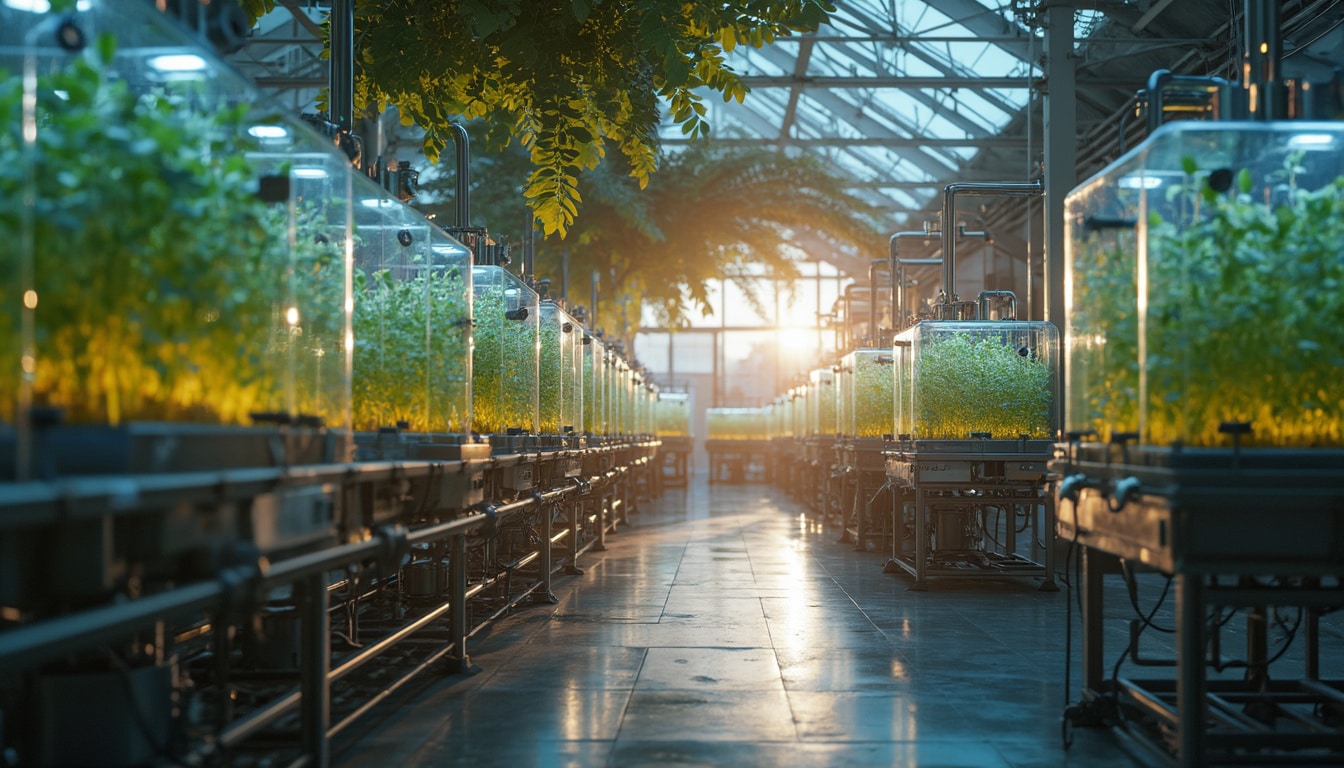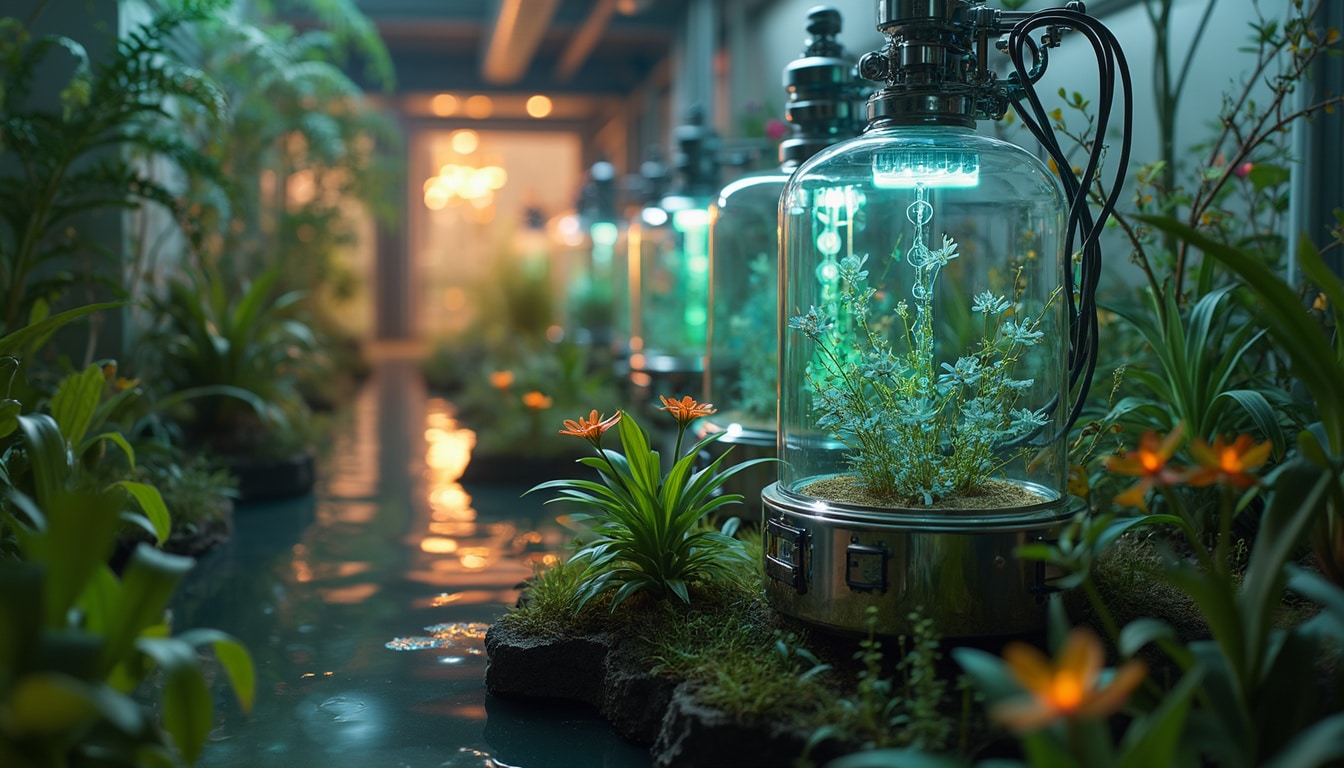Pioneering innovations in biotechnology are ushering in a new era of possibilities for human longevity. As researchers delve deeper into the complexities of biological aging, we find ourselves standing on the edge of profound discoveries that could redefine how we perceive the lifecycle. The intersection of biotechnology with advanced technologies like AI and genetic engineering presents unparalleled opportunities for extending both lifespan and healthspan.
Imagine a future where age-related diseases are not just managed but potentially reversed, where the secrets of long-lived populations around the world are decoded and utilized for the benefit of all. This exploration into the frontiers of longevity reveals a landscape rich with promise, showcasing a multitude of disciplines focused on decoding the aging process. From breakthroughs in cellular rejuvenation to the integration of biomarkers that track our biological age, the potential for extending healthy living is becoming increasingly tangible. Join us as we unpack the transformative power of biotechnology and its role in shaping a reality where a longer, healthier life is not just a dream but an attainable goal.

Longevity is a quest that transcends generations. As human beings, our natural instinct is to seek ways to extend not just our lifespan but also our healthspan—the period in life during which we remain healthy and active. With the rapid advancements in biotechnology, we are now at the forefront of a revolution that promises to reshape our understanding of aging. This article explores how biotechnology is paving the way for innovative approaches to life extension, emphasizing recent advances, practical insights, and the transformative potential of this field.
Table of Contents
ToggleRecent Advances in Biotechnology and Their Impacts on Longevity
The realm of biotechnology is booming, with annual investments surpassing $200 billion globally. This surge in funding has led to remarkable progress in understanding the biological processes that underpin aging. With powerful technologies such as gene therapy, CRISPR genome editing, and personalized medicine, we are equipped with more precise tools to combat the cellular mechanisms of senescence and decline.
For instance, researchers from Stanford University recently published a study that demonstrated the effectiveness of specific biomarkers in predicting longevity. This research illustrates how monitoring biomolecular indicators can lead us to individualized interventions, thereby personalizing aging treatments. Furthermore, companies like Rejuvenate Bio are focusing on gene therapies that aim to reverse aging signs in animal models, with a hopeful eye on human applications. This link between aging and genetics reinforces the need for continued exploration in this unique intersection of biology and technology.
Understanding the Role of Cellular Senescence
The biology of aging is intricately tied to the phenomenon of cellular senescence, where cells lose their ability to proliferate and instead promote inflammation. Recent studies suggest that targeting senescent cells can lead to significant life extension. A 2023 study published in the journal Aging revealed that clearing these dysfunctional cells from the body not only improves health but also extends the lifespan of mice by approximately 25%.
Research indicates that various senolytic drugs are being developed to selectively eliminate these cells. A notable example is Dasatinib, initially a cancer drug, which has shown promise in clearing senescent cells and reviving muscle function in older patients. Such examples serve as a testament to the potential breakthroughs biotechnology offers in combating aging-related ailments.
The Intersection of AI and Biotechnology in Longevity Research
As promising as these biotechnological advances are, integrating artificial intelligence (AI) into longevity research has opened a new frontier. AI algorithms can sift through massive datasets rapidly, drawing correlations between health metrics and longevity rates. Organizations like the Longevity AI Health are leveraging this technology to develop predictive models based on lifestyle choices, genetic profiles, and emerging health data.
By employing AI-driven analysis, we can identify early signs of aging and implement preventive measures. In practice, this translates to personalized wellness plans tailored to individual genetic makeup, potentially revolutionizing healthcare. The ability to predict and preemptively tackle age-related issues is at the heartbeat of preventive medicine.
Perspectives on Nutritional Science and its Role in Longevity
While biotechnology plays a pivotal role in extending life, it is essential not to overlook the significant influence of nutrition on health and longevity. Recent trends in dietary science indicate that adopting a plant-based diet incorporates vital nutrients that combat inflammation and cellular aging. The Mediterranean diet, rich in antioxidants and omega-3 fatty acids, is among the most studied diets advocating for longevity.
Additionally, intermittent fasting has gained traction for its benefits in promoting autophagy—an essential process for cellular repair and renewal. A comprehensive study found that intermittent fasting substantially enhances lifespan in various animal models, pointing to its profound potential for human applications.
Exploring Innovative Therapies and their Real-World Applications
In our pursuit of longevity, we have seen a rise in longevity clinics that utilize advanced therapies to enhance healthspan. These facilities offer a range of services from stem cell therapy to hormone replacement therapy, helping clients mitigate age-related decline. Research conducted by Upper Longevity shows that patients undergoing targeted therapies report improved vitality and quality of life.
Moreover, the biohacking community is an emerging force in the longevity narrative. Individuals like Benoît Le Goëdec, the founder of Longevity & Health, exemplify this movement, utilizing a suite of personalized interventions to optimize health outcomes. His journey illustrates how practical approaches to longevity—incorporating diet, exercise, and lifestyle modifications—can empower individuals to take charge of their health.
Future Perspectives: Bioengineering and Beyond
As we venture deeper into the new era of biotechnology, bioengineering stands out as an avenue with tremendous promise for life extension. From creating lab-grown organs to manipulating biological systems, this field is on the verge of transformative breakthroughs. Research centers worldwide are working on organ regeneration techniques that could eliminate the need for transplants, thus extending life expectancy.
The focus on algae in dietary interventions is also garnering attention, with studies exploring their role in enhancing cellular health. Their rich nutrient profile indicates potential benefits for longevity diets, as they provide essential fatty acids and nutrients key to cellular repair and function. Additionally, the feasibility of bioengineering applications in producing sustainable food sources places biotechnology not only at the forefront of health improvements but also environmental restoration.
In conclusion, the intersection of biotechnology and longevity research is a rapidly evolving landscape filled with opportunities for innovation. As we unlock the mysteries behind aging and explore new avenues of health optimization, we can look forward to a future where not just lifespan but a vigorous, healthful life is within reach for individuals globally. The ongoing symposiums, such as BIO 2024, provide invaluable platforms for disseminating knowledge and fostering collaboration among the leading minds in this field. Engaging with this vibrant community and the research they produce will ensure we remain at the cutting edge of the longevity revolution.

Frequently Asked Questions about Exploring the Frontiers of Longevity
What is the main focus of the exploration of longevity in biotechnology? The main focus is to understand how advancements in biotechnology can potentially decode, mitigate, and even reverse the processes of biological aging.
How can biotechnology contribute to life extension? Biotechnology contributes to life extension by developing innovative tools and techniques aimed at improving cellular health and understanding the underlying mechanisms of aging.
What are some promising areas within longevity biotechnology? Promising areas include senescence biology, AI integration, and enhancing our understanding of biomarkers related to aging.
How does artificial intelligence play a role in longevity research? Artificial intelligence aids in analyzing large datasets, discovering patterns in health and aging, and accelerating the development of new treatments and interventions.
What is the importance of understanding biomarkers in the context of longevity? Understanding biomarkers helps in identifying the biological age of individuals, predicting health outcomes, and tailoring personalized approaches to longevity.
How does the concept of healthspan differ from lifespan? Healthspan refers to the period of life spent in good health, while lifespan measures the total duration of life. The goal of modern biotechnology is to extend both.
What technological innovations are currently being explored in longevity science? Current innovations include gene therapy, regenerative medicine, and advanced anti-aging treatments that leverage cutting-edge biomedicine.
How do lifestyle factors integrate with biotechnology efforts in longevity? Lifestyle factors such as diet, exercise, and stress management are crucial as they complement biotechnological innovations for a holistic approach to extending healthspan and lifespan.
What role does education and awareness play in promoting longevity? Education and awareness empower individuals to make informed health choices that align with the latest scientific advancements in longevity, enhancing their overall well-being.





